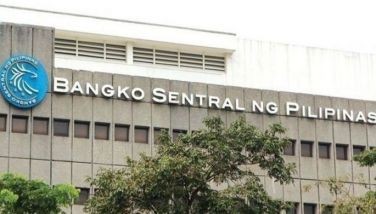Listed firms hit government participation in oil exploration
October 16, 2006 | 12:00am
Listed oil firms said the government has no business taking part in oil exploration projects and should instead work towards the privatization of the industry as they disputed reports branding oil firms racketeers on speculations that some merely cash in on their service contracts.
Philippine National Oil Co. (PNOC) president Eduardo Mañalac was reported to have said in a forum that there are local and foreign entities with dubious and unproven credentials and some service contractors who do not produce but who only speculate on their permits from the government.
Patrick Caoile, executive vice-president and general manager of Vulcan Mining and Industrial, said Mañalac’s pronouncement was unfair pointing out that most local firms listed on the exchange are owned by the country’s wealthiest families.
"I just think that’s unfair considering that most local firms have spent millions or billions of pesos for their oil exploration/drilling programs. Take the case of John Gokongwei who has a stake in Oriental Petroleum. His businesses vary from banking to real estate. He even gives away money to schools like Ateneo. Alfredo Ramos who controls Philodrill Corp., owns the largest chain of bookstore and office supplies stores in the country. They are real businessmen involved in legitimate business activities,’ Caoile said.
Caoile also noted Trans-Asia Oil and Energy Development Corp., owned by the Phinma Group of Co. which has always been a champion of corporate social responsibility.
OPMC’s Robert Coyiuto said Mañalac’s remark should be substantiated and if deemed valid, must be looked into by authorities.
He also stressed that the people behind OPMC are very credible.
An industry source, who requested not to be named, said Mañalac’s remarks could undermine the integrity of listed companies and could turn off potential investors.
"The uncalled for remarks do not augur well for the private business which is the engine of growth. The blanket charge is devoid of a sense of government service and to think that all these oil exploration firms plunked substantial investments before," the source said.
Caoile said the government should instead focus on regulating the industry rather than interfering with private business.
The Securities and Exchange Commission is distancing itself from the controversy, saying the agency’s job is merely to register local oil exploration firms as corporate entities and monitor their compliance with securities laws.
Philippine National Oil Co. (PNOC) president Eduardo Mañalac was reported to have said in a forum that there are local and foreign entities with dubious and unproven credentials and some service contractors who do not produce but who only speculate on their permits from the government.
Patrick Caoile, executive vice-president and general manager of Vulcan Mining and Industrial, said Mañalac’s pronouncement was unfair pointing out that most local firms listed on the exchange are owned by the country’s wealthiest families.
"I just think that’s unfair considering that most local firms have spent millions or billions of pesos for their oil exploration/drilling programs. Take the case of John Gokongwei who has a stake in Oriental Petroleum. His businesses vary from banking to real estate. He even gives away money to schools like Ateneo. Alfredo Ramos who controls Philodrill Corp., owns the largest chain of bookstore and office supplies stores in the country. They are real businessmen involved in legitimate business activities,’ Caoile said.
Caoile also noted Trans-Asia Oil and Energy Development Corp., owned by the Phinma Group of Co. which has always been a champion of corporate social responsibility.
OPMC’s Robert Coyiuto said Mañalac’s remark should be substantiated and if deemed valid, must be looked into by authorities.
He also stressed that the people behind OPMC are very credible.
An industry source, who requested not to be named, said Mañalac’s remarks could undermine the integrity of listed companies and could turn off potential investors.
"The uncalled for remarks do not augur well for the private business which is the engine of growth. The blanket charge is devoid of a sense of government service and to think that all these oil exploration firms plunked substantial investments before," the source said.
Caoile said the government should instead focus on regulating the industry rather than interfering with private business.
The Securities and Exchange Commission is distancing itself from the controversy, saying the agency’s job is merely to register local oil exploration firms as corporate entities and monitor their compliance with securities laws.
BrandSpace Articles
<
>
- Latest
- Trending
Trending
Latest
Trending
Latest
Recommended






























